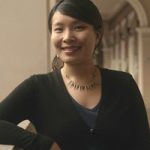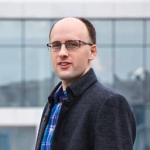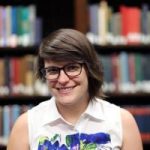Co-Directors

Selina Lai-Henderson is Associate Professor of American Literature and History at Duke Kunshan University. Her scholarship is at the heart of transnational American Studies, where she locates works of American literature in twentieth-century China and in translation. The author of Mark Twain in China (Stanford UP, 2015), Lai-Henderson’s current book-in-progress interrogates complex shifts of Afro-Asian discourses across the literary and cultural landscape of late Qing China through the Maoist era. Her recent publications include “Langston Hughes and the Shanghai Jazz Scene” in Langston Hughes in Context (Cambridge UP, 2022) and “You Are No Darker Than I Am: The Souls of Black Folk in Maoist China” forthcoming with PMLA (Spring 2023). She co-directs Freedom Lab and is on the Advisory Board of the Humanities Research Center at DKU. Prior to DKU, she was a Fulbright Scholar at Stanford University and a Research Assistant Professor at Hong Kong University. She is on the Editorial Board of Global Nineteenth Century Studies and is Senior Managing Editor of Journal of Transnational American Studies. She is Co-Chair of American Studies Association’s International Committee.

Jesse Olsavsky (PhD University of Pittsburgh, 2019) is an Assistant Professor of History at DKU. He teaches courses on Pan-African Thought, American Democracy, and US history at DKU. His research focuses on the histories of slavery, abolition and their legacies. He has published articles on the influences of enslaved women upon black feminist thought and on the ways antislavery ideas influenced 20th century Pan-African thinkers. His essays and book reviews have appeared in such journals as Slavery and Abolition, The Black Scholar, The International Review of Social History, and Socialism and Democracy, as well as in the recent and forthcoming edited volumes, A Global History of Runaways, and Frederick Douglass in Context. His research has been funded by fellowships from the Schomburg Center for Research in Black Culture, the American Council of Learned Societies, and the Gilder Lehrman Institute for American History. He is currently finishing a book manuscript on abolitionists and fugitive slaves titled “Fire and Sword Will Do More Good”: Runaways, Vigilance Committees, and the Rise of Revolutionary Abolitionism.
Affiliated Faculty
(In alphabetical order)
Bryce Beemer
Bryce Beemer’s research examines the transcultural ramifications of slave gathering warfare in mainland Southeast Asia, Northeast India, and coastal Bengal with a special focus on enslaved artisans, religious rituals, and processes of creolization and cultural exchange. He has a PhD in Southeast Asian History from the University of Hawaii at Mānoa. His Ph.D. research, conducted in Thailand, Myanmar, and Northeast India, was funded by the Fulbright-Hays Doctoral Dissertation Research Abroad (DDRA) award; and a private grant from the Watumull Foundation to support research projects in South Asia. It was also awarded the Best Dissertation Prize by the World History Association (WHA) in 2014. Professor Beemer’s publication “Southeast Asian Slavery and Slave-Gathering Warfare as a Vector for Cultural Transmission: The Case of Burma and Thailand” received academic awards for its innovative research methods from both the American History Association and the Burma Studies Foundation.
Titas Chakraborty
Titas Chakraborty’s teaching focuses on South Asian and World History, with special attention to labor, migration, and gender. I have co-edited a book, Global History of Runaways: Workers, Mobility and Capitalism, 1600-1850 (University of California Press, 2019). She has published her work on slave trade, slave resistance, domestic labor, and colonial family formation in Bengal in such scholarly journals as International Review of Social History, and Slavery and Abolition. She is currently completing her book manuscript which examines the relationship between the English East India Company and various forms of hired workers in Bengal through the lens of (un)freedom of mobility throughout the eighteenth century. In the Freedom Lab, Dr. Chakraborty will work with students continue her research on free/unfree labor.
Emily McWilliams

Emily McWilliams is an Assistant Professor of Philosophy at Duke Kunshan University. Her research is at the intersection of epistemology, ethics, and feminist philosophy. It starts from the idea that the processes by which we form beliefs are often played out interpersonally, by individuals with complex social identities. Given this, it investigates how social and political factors like social power and authority can impact the ways that people reason, and asks what we can do about it. McWilliams has a B.A. from Tulane University and a Ph.D. in philosophy from Harvard University. In 2016-17, she was a postdoctoral associate in the Department of Linguistics and Philosophy at the Massachusetts Institute of Technology, and in 2017-18 she was the Nancy Schaenen Endowed Visiting Scholar of Ethics at the Prindle Institute for Ethics at DePauw University.
Ira Soboleva

Ira Soboleva is a political psychologist with additional training in experimental methods, comparative politics, public administration, and personality psychology. She is interested in what makes people believe in themselves and achieve their civic and political goals. Her current research is centered around improving political ambition, individual efficacy, and civic cooperation in politically underrepresented populations around the world. She holds a Ph.D. from Columbia University in New York.
Qian Zhu

Qian Zhu holds a Ph.D in history from New York University. She is currently an assistant professor in History at DKU. Her research and teaching field is the 20th century China. Her book focuses on the history of progressive politics in China’s first half of the 20th century. In particular, her research looks into left-wing politics and a variety of social experiments in the 1920s-40s, which deeply engaged with the conceptualizations of freedom, liberty, equality, and emancipation. I am looking forward to work with you to tackle the unsettled question of “what is freedom?” and how the political thoughts of freedom were practiced by Chinese advocates in China and the abroad.
Affiliated Students
Chillion Munyiri

Chillion Munyiri is a junior student based in Nairobi from class of 2024 majoring in Political Economy with a track in Economics. His interests lie in entrepreneurship and business systems and is delighted to be participating as an RA in a research project focusing on corporate social responsibility for businesses under The Freedom Lab. He is carrying out filed work in Kenya and Rwanda this summer, 2022, in a study aiming to explore the compensation model of coffee farmers by multi-national coffee companies as part of his greater signature work.
Chi Nghiem

Chi Nghiem is an undergraduate from the Class of 2025. She is working as Research Assistant in the Freedom Lab to investigate the evidence for neo-colonial governance of the coffee market in Kenya and Rwanda. With interest in political economy and international inequalities, she is more than happy to research on this matter in East Africa and to propose recommendations for growth and poverty eradication. Chi is also looking forward to being challenged by the project with the complexities of commodity markets and the nuance in the North-South trade relations.
Ruohan Wang

Ruohan Wang is from the class of 2024. She majors in Global Cultural Studies with the track of World Literature. She works as a research assistant at the DKU Freedom Lab. She is assisting Professor Lai-Henderson in her research on the African American Literature in 20th century China. She is very excited to be part of this project.